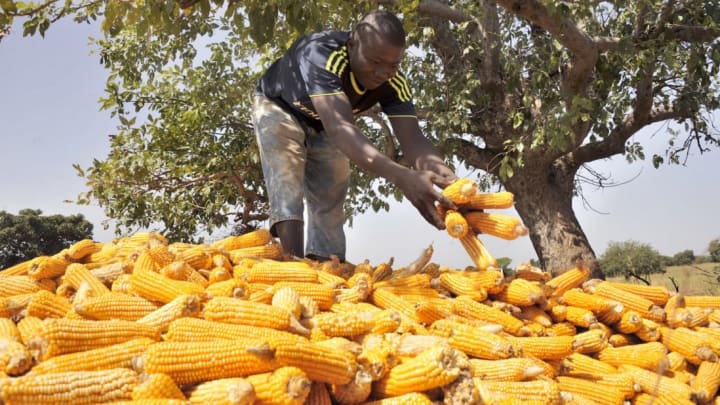If you're used to fighting virtual zombies or flying spaceships on your computer, a new series of games available on Foldit may sound a little unconventional. The object of the Aflatoxin Challenge is to rearrange protein structures and create new enzymes. But its impact on the real world could make it the most important game you've ever played: The scientists behind it hope it will lead to a new way to fight one of the most ruthless causes of liver cancer.
As Fast Company reports, the citizen science project is a collaboration between Mars, Inc. and U.C. Davis, the University of Washington, the Partnership for Aflatoxin Control in Africa, and Thermo Fisher Scientific. The team's online puzzles, which debuted on Foldit earlier this month, invite the public to create a new enzyme capable of finding and destroying carcinogens known as aflatoxins.
Aflatoxins form when certain fungi grow on crops like corn, nuts, and grains. Developing countries often don't have the resources to detect it in food, leaving around 4.5 billion people vulnerable to it. When people do eat food with high aflatoxin levels unknowingly, they can contract liver cancer. Roughly a quarter of all liver cancer cases around the world can be traced back to aflatoxin exposure.
The toxin's connection to agriculture is why the food giant Mars is so interested in fighting it. By working on a way to stop aflatoxins on a molecular level, the company could prevent its spread more efficiently than they would with less direct methods like planting drought-resistant crops or removing mold by hand.
The easiest way for scientists to eradicate an aflatoxin before it causes real harm is by making an enzyme that does the work for them. With the Aflatoxin Challenge, the hope is that by manipulating protein structures, online players will come up with an enzyme that attacks aflatoxins at a susceptible portion of their molecular structure called a lactone ring. Destroying the lactone ring makes aflatoxin much less toxic and essentially safe to eat.
The University of Washington launched Foldit in 2008. Since then, the online puzzle platform has been used to study a wide range of diseases including AIDS and Chikungunya. Everyone is welcome to contribute to the Foldit's new aflatoxin project for the next several weeks or so, after which scientists will synthesize genes based on the most impressive results to be used in future studies.
[h/t Fast Company]
